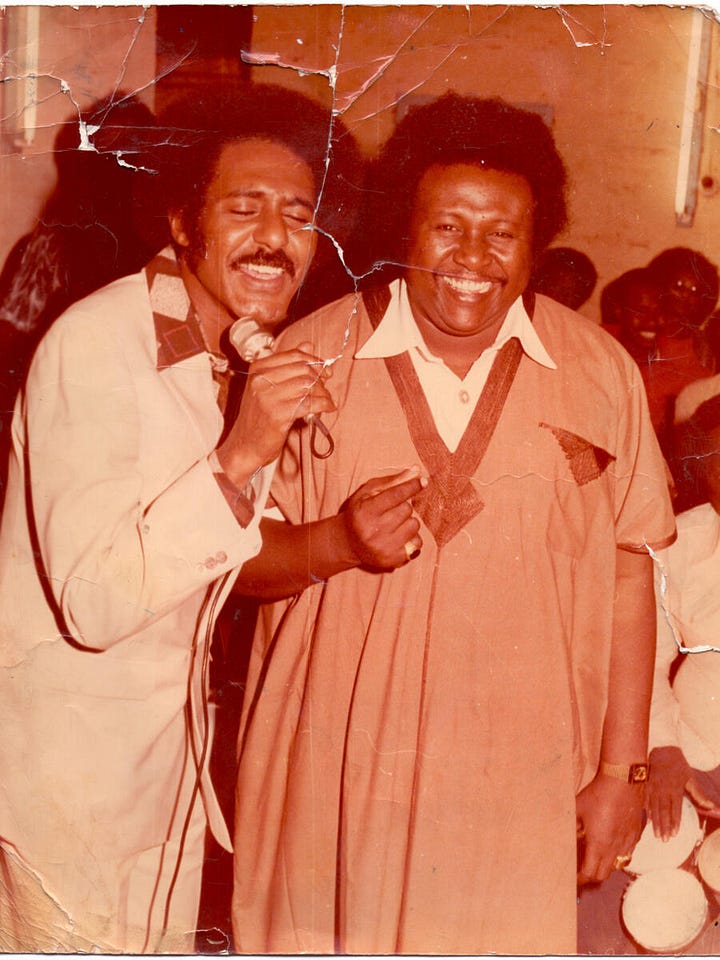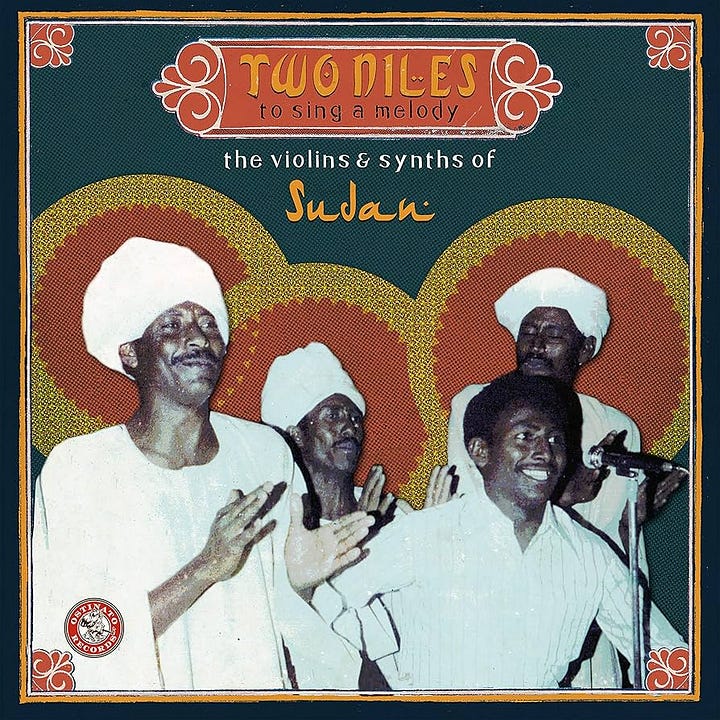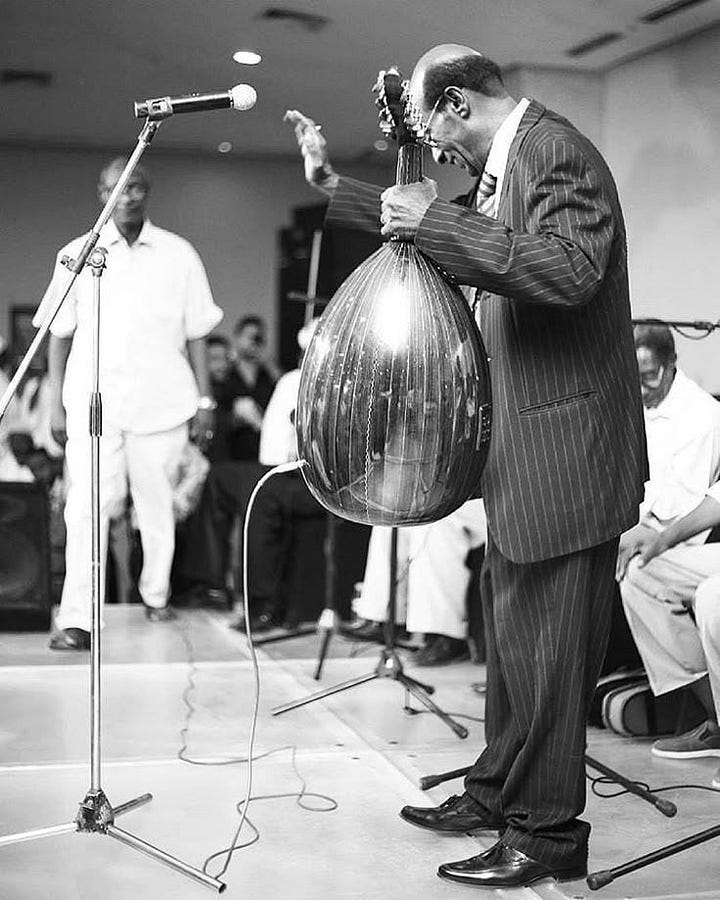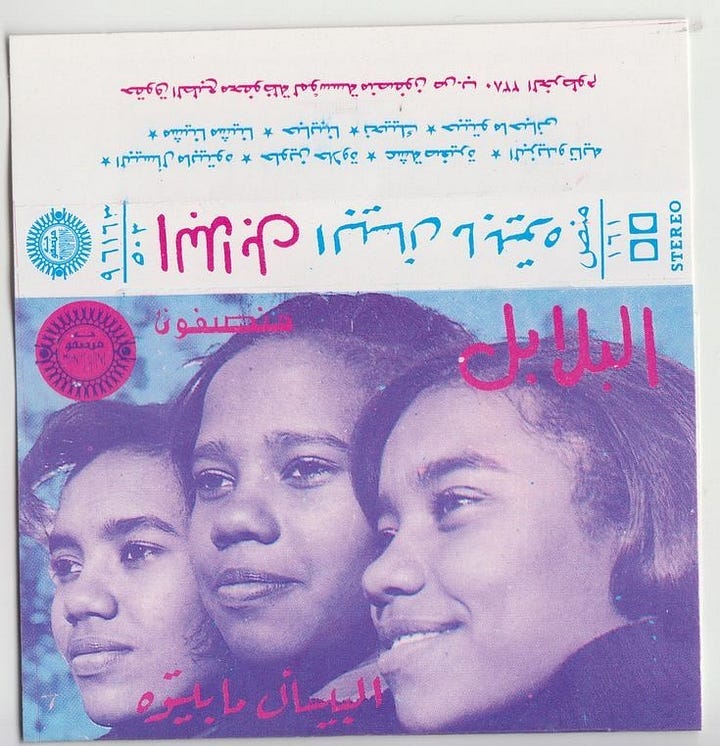Like many African societies, Sudan’s music is a rich tapestry knitted from the diverse cultural and ethnic background of the country. It reflects the nation’s history, social dynamic, and the interplay of traditional and modern influences. It’s incredibly diverse and very rooted in culture. A beautiful blend of African and Arab influences. I just fell in love with it and the music nerd in me could not help but start exploring and learning more about Sudan’s cultural and musical past.
I started exploring Sudanese music early this year after stumbling across a beautiful vinyl compilation released in September 2018 by Ostinato records called “Two Niles to sing a melody: The violins and synths of Sudan”. In this vinyl was a collection of Sudan’s music from Khartoum between the years 1970 and 1989. This period is often referred to as the country’s musical golden age. This is because during that time music was all around. Songs of praise, rhythms set to a camel’s gait, stringed instruments from the Orient, bands, orchestras, diverse sound systems and even poetry, were everywhere in the capital of Khartoum. It was a time of cultural and musical innovation and popularity that played a significant role in shaping the country’s cultural identity.
The pioneers of this golden era were often singers, songwriters, and even poets including my absolute favorite Mohammed Wardi. One of the songs I had fallen in love with on the vinyl was a song by him called “Al Mursal” (meaning “The messenger”). A romantic and poetic song about a man who had fallen in love with a woman and needs a messenger to go convince her to accept his love. Another one I absolutely love is called الطير المهاجر (The migrating bird). A deeply poignant song about a lonely bird longing and searching for a home and a better life. The imagery of the migrating bird serves as a metaphor for the human experience of migration. In the song, Wardi honors and sympathizes with those who have encountered emotional and physical challenges that come with migrating and searching for a better life.
“Fly” he urges the bird. “Don’t dare waste a second. Keep going, from tonight until morning, through the rain and against the wind. And if your grow tired, fly faster. In our country you can rest”.
What stood out to me the most was not only his sweet voice and poetic lyrics but how he, along with his contemporaries, during that era valued music and used it as a powerful tool for cultural expression, empowerment, and advocacy. Advocacy for people, nature, and animals. While exploring his career I found that he once performed at a sold out 60,000-capacity stadium in the Cameroonian capital Yaoundé, to a Francophone audience. That's how big he was! And I love that people worldwide appreciated his work. I was heartbroken to learn he passed on in 2012. But what warms my heart is seeing how much he still means to the people of Sudan 12 years after his death.
While exploring, I found it strange—and deeply unsettling—that Sudanese music is so difficult to access beyond Khartoum, especially given the country’s rich history of musical expression and cross-cultural influence. What happened to this golden era of creativity and innovation? Why is it so hard to find the work of these great artists and poets?
The answer lies in a pivotal moment: in 1989, a military coup ushered in a hardline religious regime that aggressively suppressed music and all forms of artistic expression. Musicians were forced into exile. Those who stayed often faced violence, imprisonment—or worse. Instruments were destroyed, recordings lost, and a cultural silence was violently imposed.
An era that once made Sudan one of the cultural heartbeats of Africa was brutally silenced.
What breaks my heart most is how this denied legendary artists—like Mohammed Wardi—the global stage they deserved. Their sounds carried histories, dreams, and identities. And the world was robbed of that beauty.
I’ll always be fascinated and in complete awe of Sudan’s rich cultural and musical history. So beautiful, so layered, so theatrical. Even though the creative scene suffered deeply after the 1989 coup and the political turmoil that followed, I still hold on to hope. My hope and my prayer is that the people of Sudan, along with their wellbeing and their creative spirit, will rise again. That they’ll have the space to tell their stories, share their sounds, and finally receive the recognition they’ve always deserved.
Their voices, long silenced, deserve to echo far beyond borders. May they be heard, celebrated, and honored for the brilliance they’ve always carried.
🎧 Two Niles to Sing a Melody: The Violins and Synths of Sudan❤️
While writing this piece, I found myself returning to The Violins & Synths of Sudan by Ostinato Records, a hauntingly beautiful album that feels like a portal into the golden age of Sudanese sound.
For me, this isn’t just an album, it’s a time capsule. A tender tribute to the artists who gave Sudan its soundtrack, even as history tried to quiet them.












